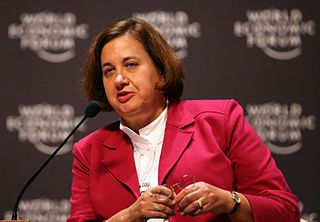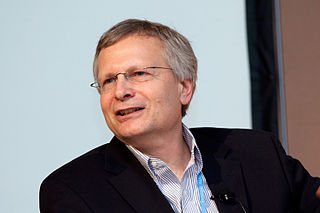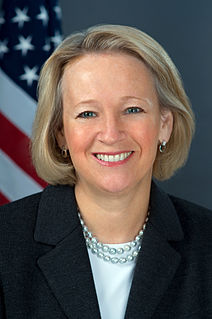A Quote by Mohamed El-Erian
Investors should be cautiously positioned as the global economy and markets face major uncertainties. The downgrade will be a further headwind to growth and job creation in the U.S.
Related Quotes
We believe that it is very important that we have hopefully averted what would have been the most substantial headwind of all, which is a default for the first time in our history, and that that will contribute to a more positive environment that we hope will allow for greater growth and job creation.
I believe investors should invest for the long run, so I don't buy and sell. I usually maintain the classic index of global equities, diversified U.S. and global and emerging markets, and when the risk is larger, I diminish the amount in global equities and put more into liquid assets - but very irregularly.
I don't mean to imply that we are in imminent danger of being wiped off the face of the earth - at least, not on account of global warming. But climate change does confront us with profound new realities. We face these new realities as a nation, as members of the world community, as consumers, as producers, and as investors. And unless we do a better job of adjusting to these new realities, we will pay a heavy price. We may not suffer the fate of the dinosaurs. But there will be a toll on our environment and on our economy, and the toll will rise higher with each new generation.
Republican leaders have made clear they have no plans to use the power of government to stimulate the economy, invest in job creation and spur job growth. The Fed's plan is to give banks more money to finance the private sector job creation. But banks have ample cash now; they aren't lending, and the private sector is not creating the jobs. That is why we have 15 million people unemployed.
Unlike national markets, which tend to be supported by domestic regulatory and political institutions, global markets are only 'weakly embedded'. There is no global lender of last resort, no global safety net, and of course, no global democracy. In other words, global markets suffer from weak governance, and are therefore prone to instability, inefficiency, and weak popular legitimacy.
Too often, investors are the target of fraudulent schemes disguised as investment opportunities. As you know, if the balance is tipped to the point where investors are not confident that there are appropriate protections, investors will lose confidence in our markets, and capital formation will ultimately be made more difficult and expensive.
Like all major transitions in human history, the shift from a linear to a circular economy will be a tumultuous one. It will feature heroes and pioneers, naysayers and obstacles, and moments of victory and doubt. If we persevere, however, we will put our economy back on a path of growth and sustainability.


































